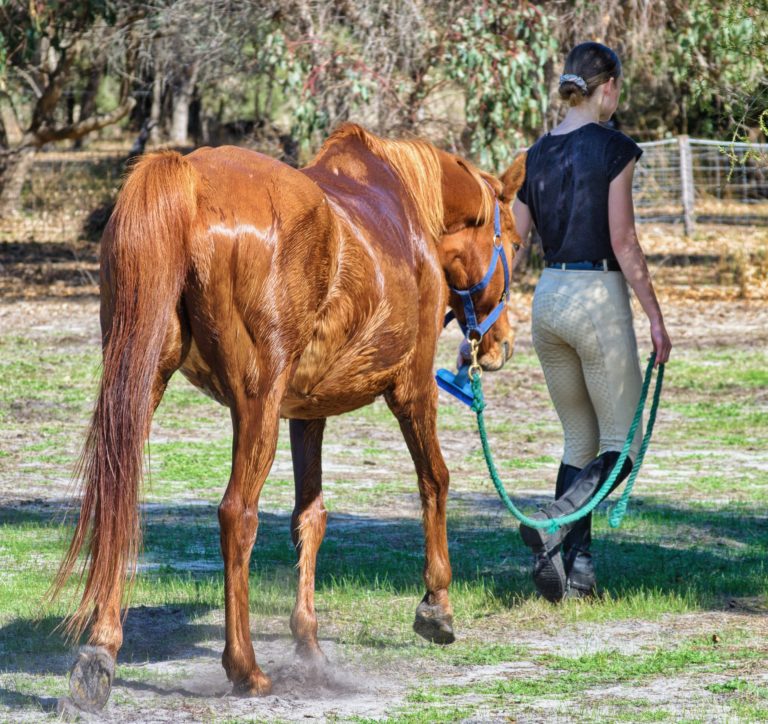

Grooms – are they employed or self employed? Unfortunately, this is not a simple question to answer as employment status in the UK is determined by the reality of the working relationship and not simply by the terms of any contract.
Employees enjoy the most rights and protection and self-employed individuals the least so many people try and claim their workers are self-employed to avoid these obligations. Unfortunately, individuals cannot be opted out of employment rights and protections simply by being labelled as self-employed if the true nature of the relationship is that of employer and employee.
What are the differences between employees and self-employed workers?
It is an important distinction, as employed staff have more rights and protections than the self-employed, who very often have no legal employment rights at all. For some, this is a fair trade-off for the flexibility and independence of the truly self-employed, but for others, the label is misleading and means they could lose out on such things as paid holidays, the security of having their tax and National Insurance paid regularly and maternity/paternity leave.
What costs are involved?
It is a widespread issue in the equestrian sector, where there is very little profit to be made and many people work with horses for the learning and experience that they get, that many staff work for very little reward. Many equestrian businesses couldn’t survive if they had to pay all their staff minimum wage, holiday pay and pension costs, but if you take on staff these are all legal requirements.
The emphasis now is on the employer to assess the relationship and getting it wrong could prove costly, you are better off getting it right from the beginning. You can use the bullet point lists below to determine the true nature of the relationship between the worker and employer. If you feel that ultimately your workers are employees, then you will need to put in place the necessary measures and contracts to fulfil your legal obligations.
If you are worried about the implications the extra costs will have on your business then get in touch with us and we can chat through the costs and overheads of your business to see if we could make your business more profitable.
Can you change a workers status?
You may decide, looking at these lists that you go the other way and put in changes to the relationships you have with your workers to make it clear that they are self-employed. You will obviously have to communicate this with your workers and it may mean that you lose the right to dictate certain terms so it may not be a suitable solution for every business. For example, if you are relying on that person’s ability to ride certain horses, it may not work for your business if they sent a replacement to do their work. If you are employing someone simply to muck out stables, it wouldn’t necessarily be such a problem if they sent a replacement to do their job.
If you employ staff or you are thinking of employing staff in your equestrian business and would like to chat this through please contact us for further information.
How to Determine if you are an Employee or Self Employed –
-
Employee
Gov.uk defines an employee as ‘someone who works under an employment contract’. However, this in itself is a bit vague, as contractors and other types of self-employed people may well have a contract with the client they’re carrying out work for.
The easiest way to work out whether you’re an employee is to answer the following questions. If the answer is ‘yes’ to most of them, you’re probably an employee:
- Are you required to work regularly (unless you’re on leave, including holiday, sick leave or maternity leave)?
- Are you required to do a minimum number of hours? And do you expect to be paid for the time worked?
- Is a manager or supervisor responsible for your workload, deadlines and giving direction around how work should be done?
- Is it just you who can perform the role? (So, you couldn’t send someone else to do your work instead)
- Do you get paid holiday?
- Are you entitled to contractual or Statutory Sick Pay, and maternity or paternity pay?
- Do the business’s disciplinary and grievance procedures apply to you?
- Does the business give you materials, tools and equipment for your work?
- Is this the only business you work for? If you have another job, is it completely different from your work for this business? (For example, you work as a receptionist but also as a groom at the weekend)
- Does your contract, statement of terms and conditions, or offer letter use terms like ‘employer’ or ‘employee’?
-
Self-employed
Again, we’ll start with a gov.uk definition. You can pretty much tick that self-employed or contractor box if you run your business for yourself and take responsibility for its success or failure’. If you’re self-employed, you won’t be paid through employee Pay As You Earn (PAYE) and you won’t be entitled to the rights and responsibilities that apply to employees.
To work out if you have self-employed status (or contractor status), ask yourself the following questions. If it’s a ‘yes’ to most of them, you probably do:
- Are you in business for yourself? If so, you’re responsible for its success or failure and can make a loss or profit.
- Are you free to decide what work you do? And when, where and how you do it?
- Could you subcontract the work, if you wanted to?
- If there was a problem with your work, would you be responsible for fixing it, in your own time?
- Do you and the employer agree on a fixed price for your work, regardless of how long the job takes to finish?
- Do you use your own money or funding to buy what’s needed to run the business and deliver for the employer?
- Are you free to work for more than one client?
- Are you exempt from PAYE?
- Do you tend to supervise yourself when working?
- Do you submit invoices for the work you’ve done?
- Are you responsible for paying your own NI contributions and tax?
- Are you exempt from holiday or sick pay?
- Do you operate under a contract (often called a ‘contract of services’ or ‘consultancy agreement’) that uses terms like ‘self-employed’ or ‘independent contractor’?

If you employ staff or you are thinking of employing staff in your equestrian business and would like to chat this through please contact us for further information.
